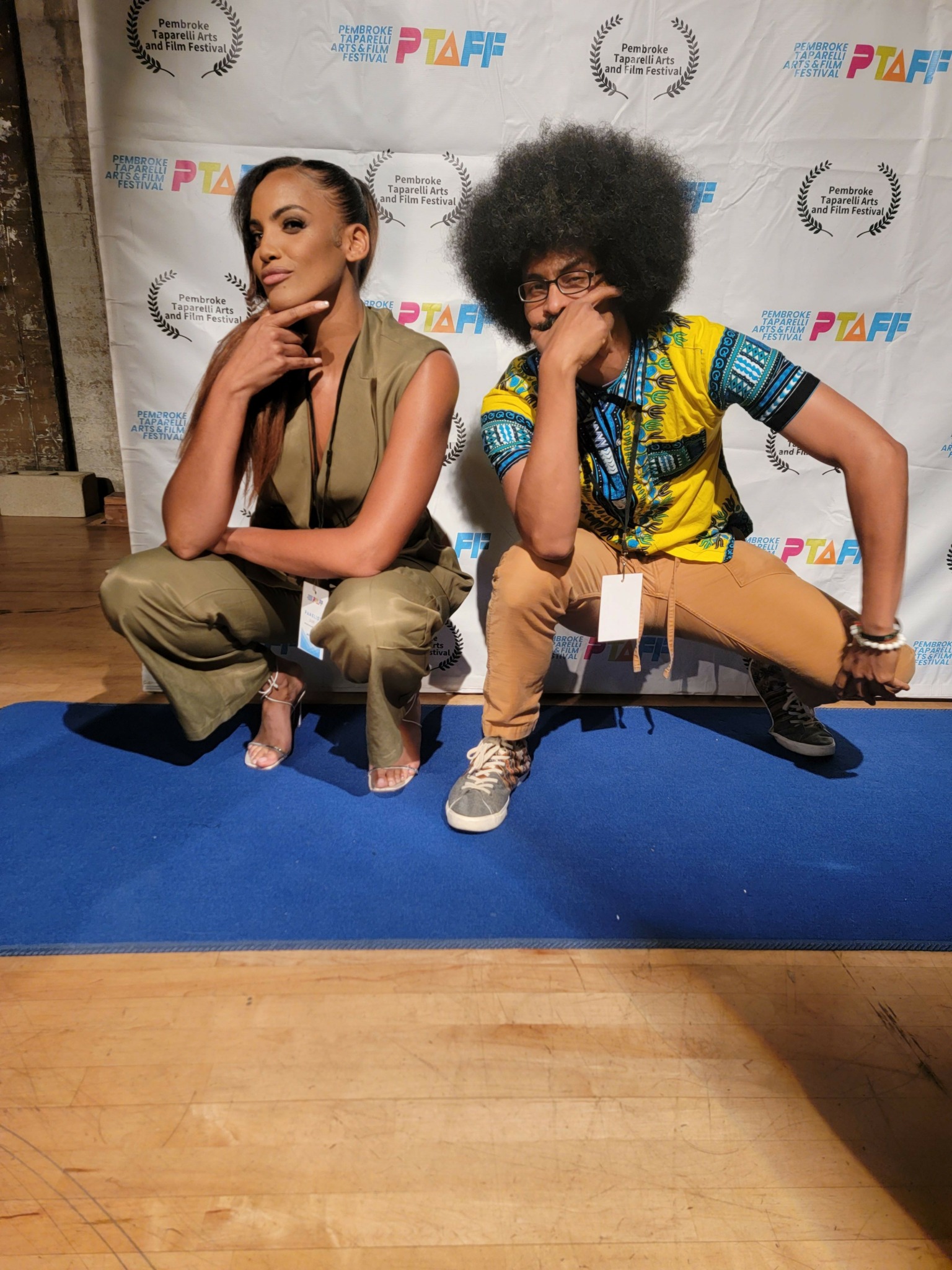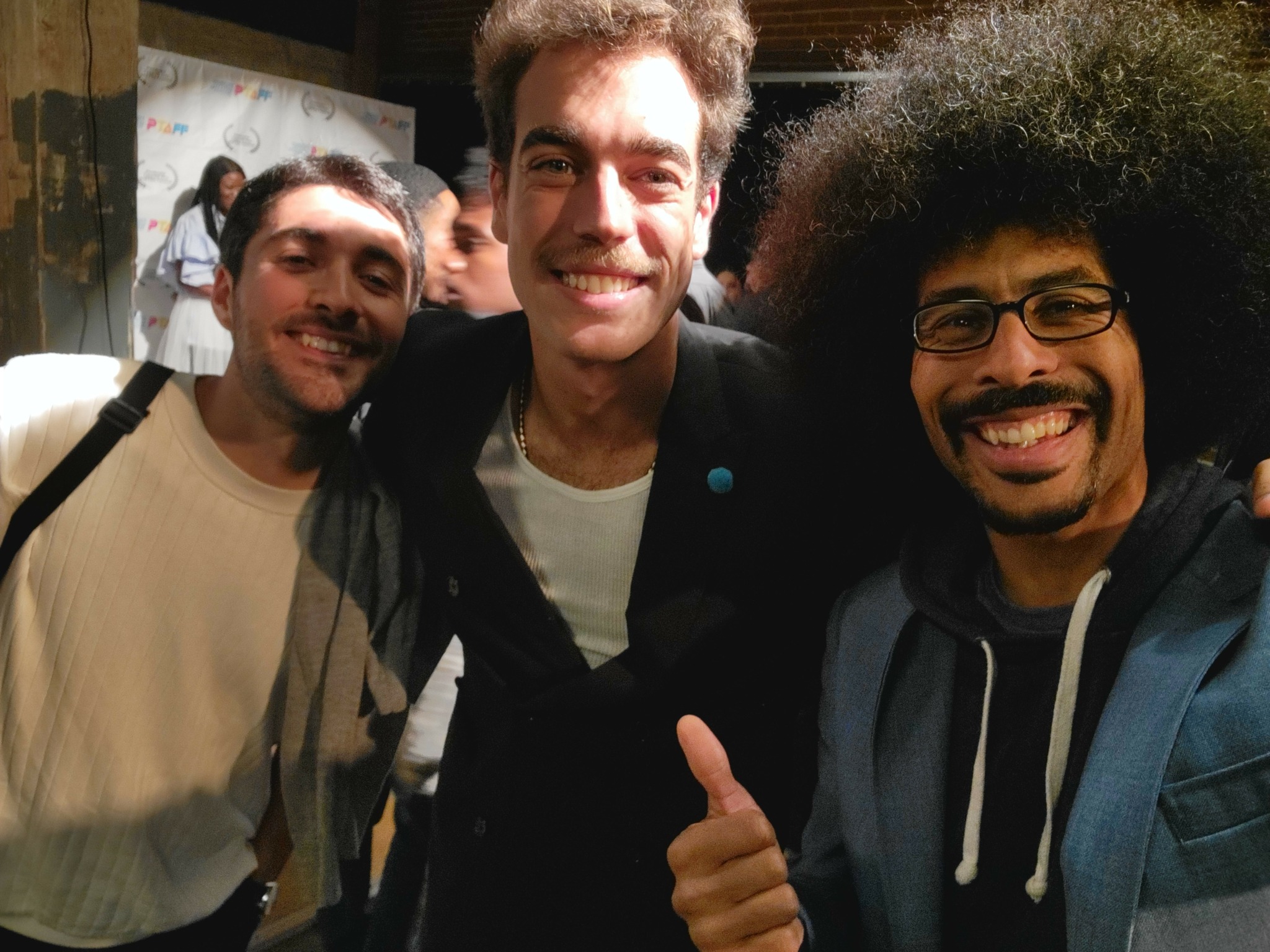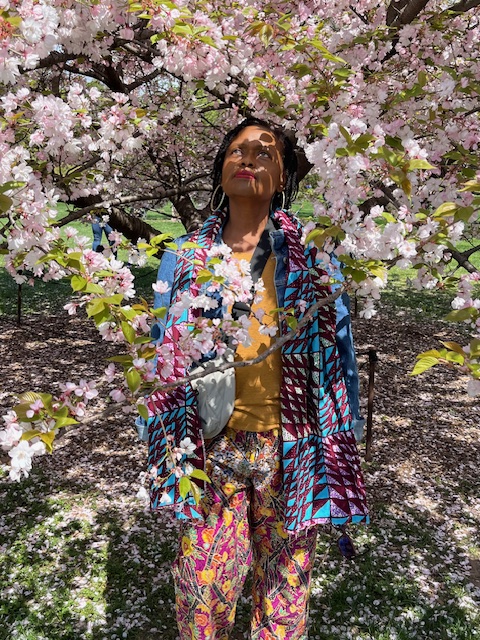Alright – so today we’ve got the honor of introducing you to Michelle Andrea Meshel Smith. We think you’ll enjoy our conversation, we’ve shared it below.
Michelle Andrea, looking forward to hearing all of your stories today. Are you happy as a creative professional? Do you sometimes wonder what it would be like to work for someone else?
I am absolutely happier as an artist—though to be absolutely honest, that happiness is hard-won. It’s not the kind of happiness that has floated in effortlessly like a breeze. It’s the kind you fight for, through uncertainty, self-doubt, and especially through financial anxiety. But even with all of that, I can say with full conviction: this is my calling.
Now, do I think about what it would be like to have a regular job? All the time especially when I’m worried about money, which, let’s face it, is often. The thought comes in like a storm cloud: “Wouldn’t it be easier to just get a steady paycheck, clock in and out, and know that the bills are covered?” It is very tempting in those moments.
The last time that thought hit me hard, I was sitting on the edge of my bed staring worried because I was behind in rent. . I had just come from an incredible creative high—wrapped a production in New York that got great reviews and moved everyone involved—but I came home to financial stress, past-due notices, and a fridge that had more condiments than groceries. That night, I opened my laptop and started searching job listings on Indeed. Something in admin, something legal—I do have a law degree after all. Something stable. I even filled out half of an application.
But as I stared at the screen, I felt a kind of dread. Not because I think I’m above that kind of work—because I’ve had plenty of regular jobs—but because I know myself. I’ve never lasted more than two years in a “normal” job. Not because I couldn’t do the work, but because something in me starts to wither when I’m not creating.
I live to make meaning through storytelling, through images and dialogue and emotion. It’s not just about loving the craft. For me it’s spiritual. It’s purpose. And no job description in the world can compete with that. So I closed the laptop, took a breath, and reminded myself that I didn’t come this far to trade my calling for comfort.
If there’s one insight I’ve come to, it’s this, the creative path for me hasn’t always felt good, but it has always felt right. And when I stay aligned with that truth, the moments of doubt passes, and I find my way back to the work I was put here to do.
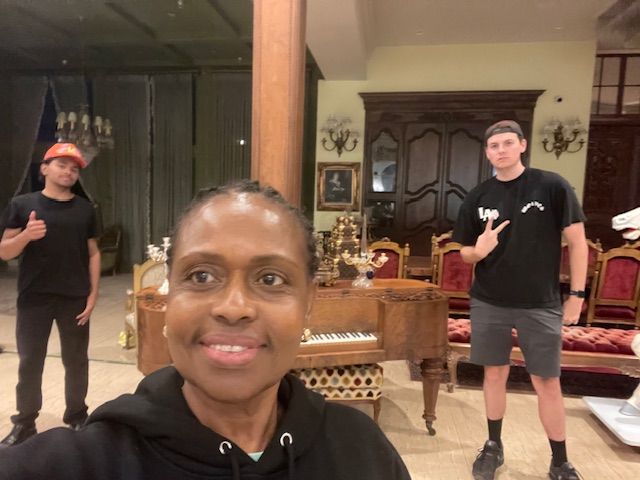
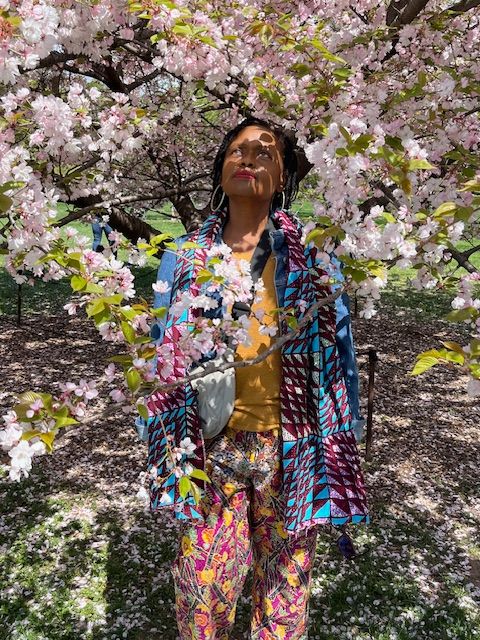
Michelle Andrea, before we move on to more of these sorts of questions, can you take some time to bring our readers up to speed on you and what you do?
I’m Michelle Andrea Meshel Smith—artist, filmmaker, producer, speaker, and founder of the Pembroke Taparelli Arts & Film Festival (PTAFF), an event rooted in the power of storytelling as a tool for social justice. I often refer to myself as an artivist—someone who uses art as a vehicle for activism, healing, and cultural transformation.
My journey into this world wasn’t linear—it was layered. I started with a law degree and a background in psychology, but even then, I knew my calling was in the creative space. I grew up in Kingston, Jamaica, surrounded by vibrant culture, rhythm, and resilience. That upbringing taught me that art isn’t just for entertainment—it’s survival. It’s resistance. It’s identity. So, after working in law, education, and nonprofit spaces, I pivoted toward filmmaking and storytelling full-time because it felt like the most honest way for me to contribute to the world.
Through my work, I’ve written, directed, and produced films and creative projects that shine a light on issues like racial injustice, gender equity, immigration, mental health, and the nuances of identity. PTAFF, the festival I founded, curates films and art from around the world that spark conversation, build community, and uplift voices that are often unheard. We’ve become a platform for emerging and established artists alike to showcase work that doesn’t just entertain—it creates impact.
In addition to the festival, I run GPS FilmWorks (Getting People Stronger), a creative production company that is in the development stages. We seek to develop original film and TV content while also helping nonprofits and socially-conscious businesses tell their stories powerfully through video and branded media. Whether it’s a documentary series, a youth filmmaking challenge, or a PSA campaign, the work is always grounded in the belief that stories heal, educate, and mobilize.
What sets me apart is that I don’t approach creativity from a commercial-first mindset—I lead with purpose. Every project I take on has to resonate with deeper meaning. I’m not chasing fame or flashy metrics—I’m here to tell the stories that matter. I combine my legal, nonprofit, and creative background to not only create beautiful work, but to ensure that it moves the needle on the issues we care about.
I’m most proud of the community we’ve built through PTAFF—the young people we’ve mentored, the filmmakers we’ve supported, and the audiences who leave our events changed in some way. I’m also proud of the fact that I keep going, even when it’s hard. This work isn’t easy. It requires faith, tenacity, and a willingness to hold space for complex truths. But I wouldn’t trade it for anything.
To potential clients, collaborators, and followers: I want you to know that working with me isn’t just about production—it’s about purpose. I’m interested in working with people who care deeply, who aren’t afraid to push boundaries, and who want to make something that lives beyond the screen. If that’s you, then let’s create something powerful together.
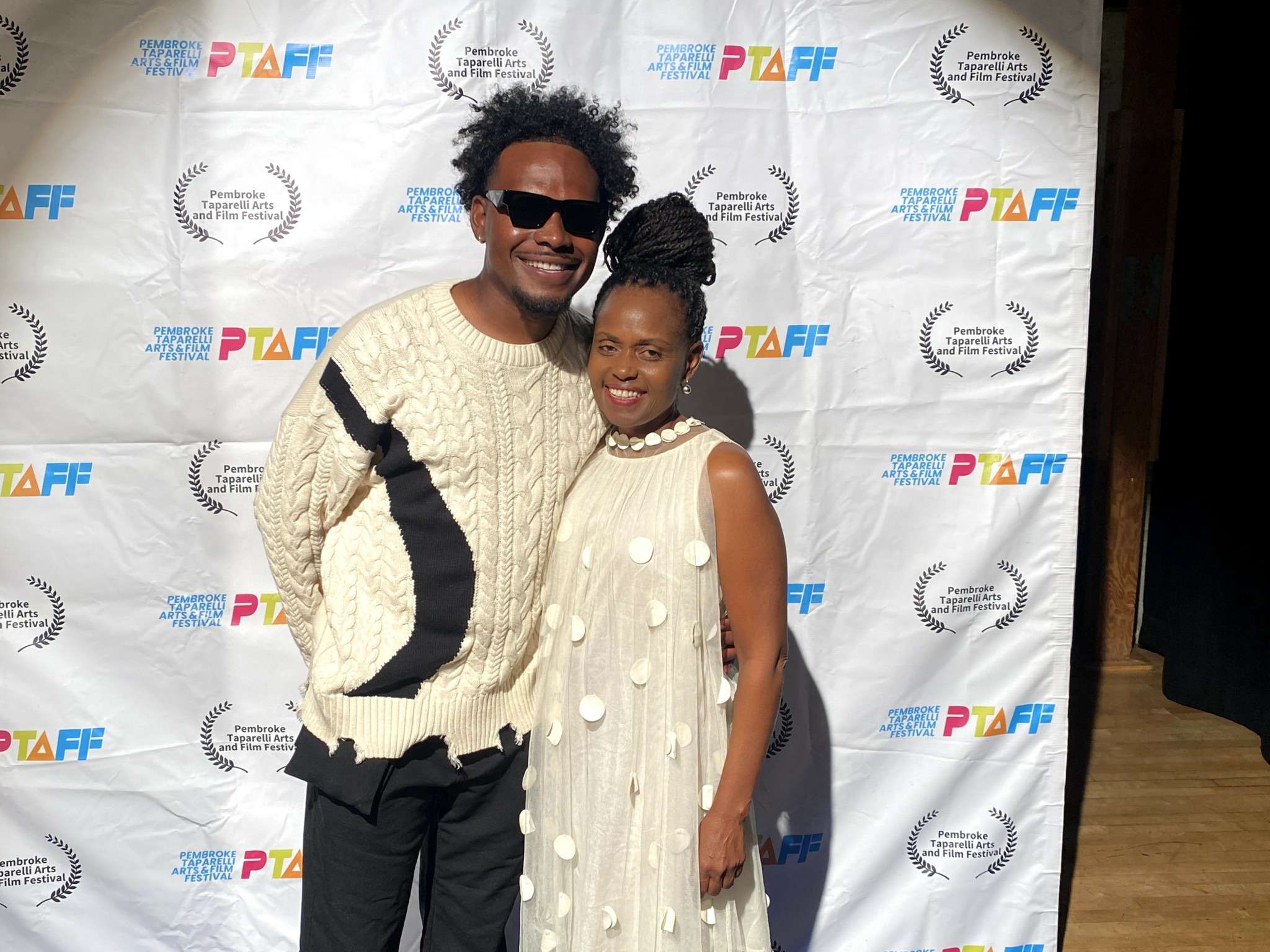
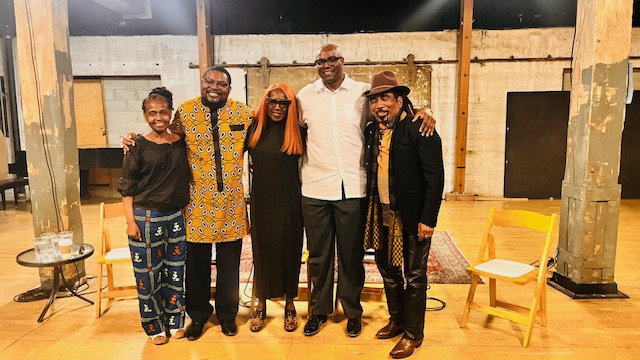
We’d love to hear a story of resilience from your journey.
Absolutely. One story that stands out happened during one of the most challenging periods of my creative journey—when I was organizing the Pembroke Taparelli Arts and Film Festival (PTAFF) in its early years.
We had a bold vision: to create a space for socially conscious films and artists who were using their work to challenge injustice and spark meaningful dialogue. But we didn’t have the funding, the backing, or even a venue confirmed just weeks before the festival was set to launch. I remember staring at my email one night, and coming to the realization that not one of the emails I had sent to sponsors had been answered. My bank account did not have the necessary funds for the venue and I thought to myself, “Maybe I should just cancel. Maybe this was too ambitious.”
But something wouldn’t let me give up. I kept thinking about the filmmakers who had submitted their stories from all over the world—many of them making films in dangerous or underserved communities just to have their voices heard. I thought about the young people we wanted to reach, who deserved to see themselves represented on screen. I thought about how silence and invisibility are part of the oppression we’re all trying to dismantle.
So I did what creatives do best—I got resourceful. I leaned on community. I called in favors. I negotiated late into the night. I pulled together a team of believers, and somehow, by sheer faith, strategy, and the grace of those who showed up, the festival happened. And it was beautiful.
That moment taught me something that I still carry with me today: resilience isn’t about perfection or having everything figured out—it’s about refusing to let your purpose die in the face of uncertainty. It’s about standing up for your vision, even when you are shaking on the inside.
I’ve faced many moments since then where the path was unclear, or the money was short, or I questioned my own capacity. But each time, I remind myself of that season—when what we built after almost giving up. That’s what keeps me going.
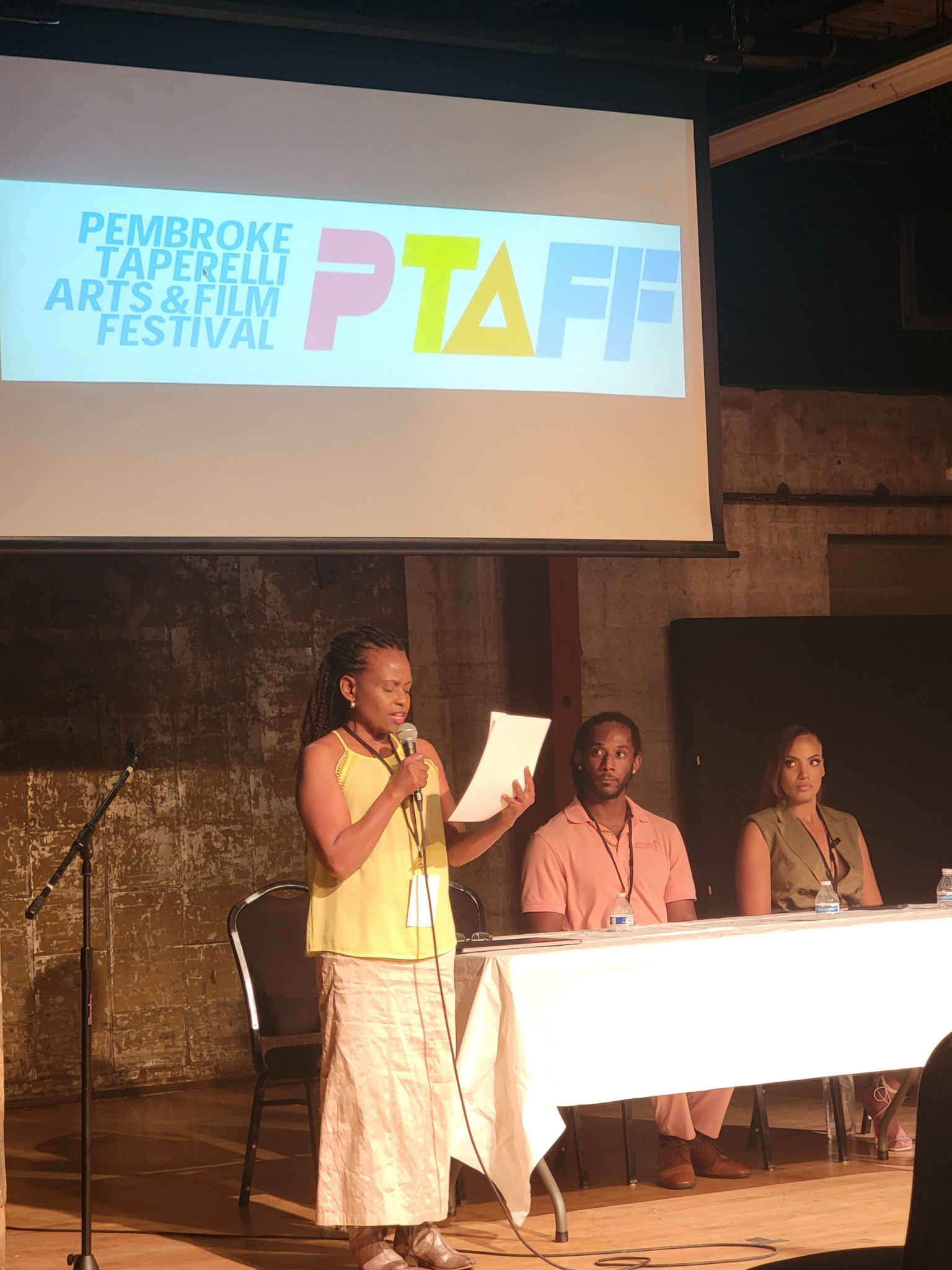
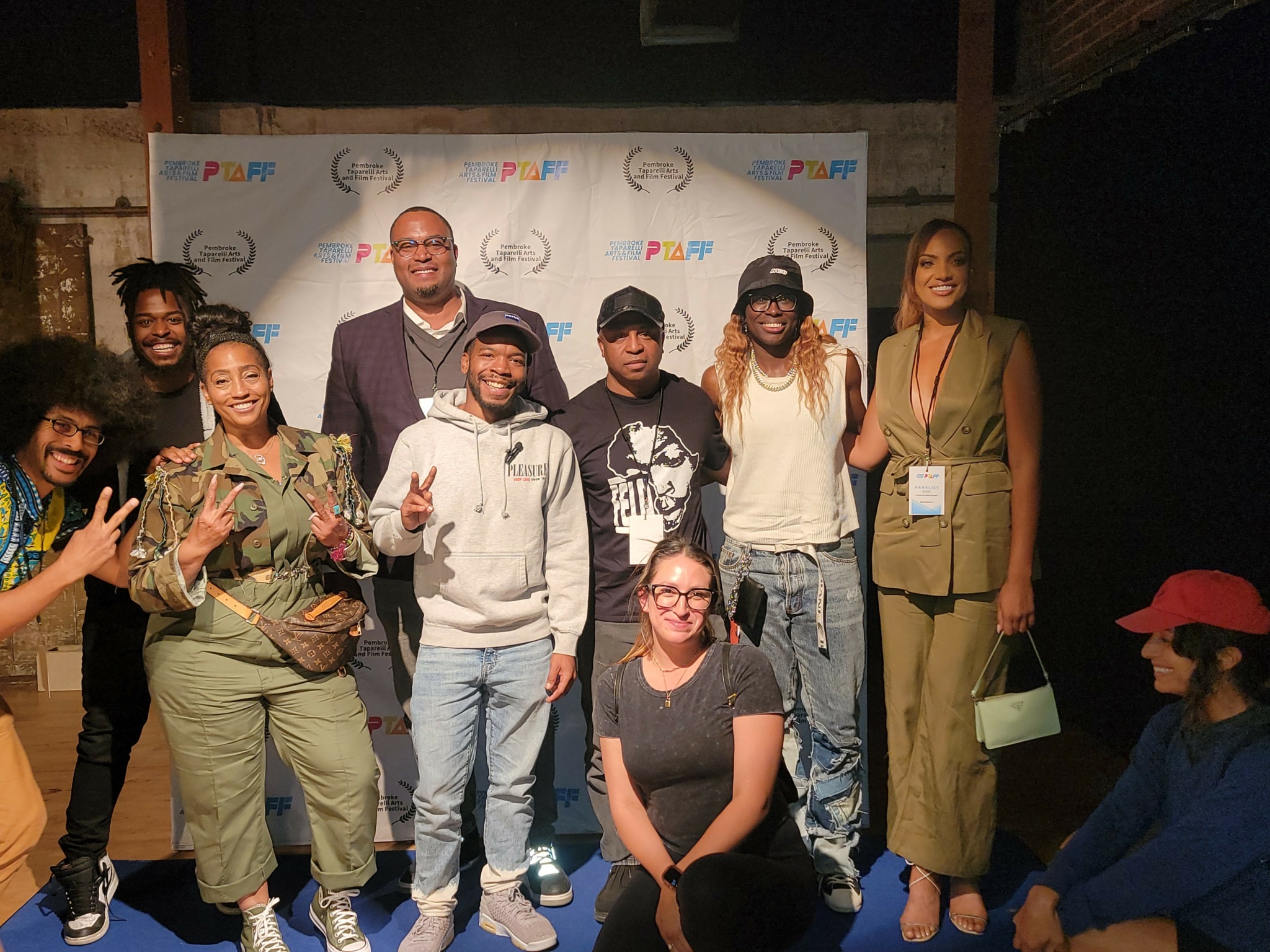
Is there something you think non-creatives will struggle to understand about your journey as a creative?
Yes—what I think many non-creatives struggle to understand is that the creative path often looks unstable or risky from the outside, but for many of us, it’s the only path that feels truly alive. It’s not a hobby or a phase—it’s purpose, breath, and identity.
People sometimes assume that choosing to be an artist is about chasing fame or avoiding “real” work, but that couldn’t be further from the truth. Creativity demands discipline, sacrifice, and vulnerability on a level most people don’t see. There’s no steady paycheck, no clear blueprint—just vision, grit, and the willingness to keep showing up for a dream that might not materialize for years.
I spoke earlier about the early days of building the Pembroke Taparelli Arts and Film Festival and nearly canceling the event due to lack of funding and support. From the outside, someone might have asked, “Why are you doing this? Why not wait until you have the money or it’s easier?” But for those of us called to this work, those are not real options as none of it is ever guaranteed, more money may not come and nothing about the war we do is ever easy.
What many don’t see is the emotional labor behind the art—the sleepless nights, the self-doubt, the financial tightrope, the tears shed (I cry a lot, a lot) and the courage it takes to keep creating anyway. When you’re building something that doesn’t exist yet, you have to believe in it before anyone else sees it. That’s not delusion—it’s faith.
So if I could offer any insight, it’s this: creatives aren’t just dreamers. We’re builders, healers, translators of culture. And when society supports us, through funding, providing platforms for our work, fair pay, or even just understanding, everyone benefits. Because art doesn’t just reflect the world. It reimagines it.
Contact Info:
- Website: https://www.ptaff.org
- Instagram: https://instagram.com/andreameshel
